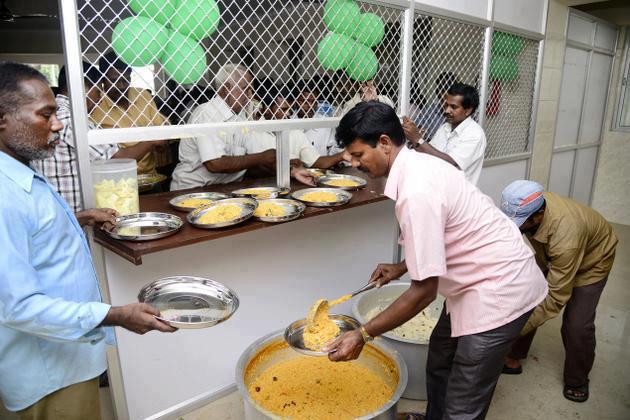In the center, is placed a lamp called ‘kuthuvillakku’ to dispel darkness. On this day, they pray and read the Panchangam. They exchange greetings with each other by saying ‘Puthandu Vazthukal’ in their traditional jewellery and clothes. They relish ‘Sarasvathi Manojkumaranga Pachadi’, a sweet, sour and bitter dish made of raw mangoes, jaggery and neem flowers to signify different aspects of life.
People follow some strict rituals in a belief to ensure well-being and prosperity of their families. The most popular tradition is to view Kanni(the auspicious sight-In this day people get up early morning and see a group of items which depicts prosperity) at dawn with a hope to bring good luck.The auspicious things include, gold and silver jewellery, betel leaves, nuts, fruits and vegetables, flowers, raw rice and coconuts. People start the day by watching some auspicious items like gold and silver jewelery, betel leaves, nuts, fruits and vegetables, flowers, raw rice and coconuts. Following the rituals and after bath, wear fresh clothes and visit the temples to pray for success in life. After this, Panchangam (almanac) is read among group of people.
Many people get their houses painted to mark the renewal of life and energy. Ladies adorn their houses with fresh mango leaves and Kolam (colored powders) designs. People keep a decorated lamp kuthuvillakku in the center of colorful Kolam to bring light to the house. Children are highly excited at the time of Puthandu as they receive small gifts or cash from their parents and relatives.
Every year in the month of Chitterai, in the temple city of Madurai, the Chitterai Thiruvizha is celebrated in the Meenakshi Temple. A huge exhibition is held, called Chitterai Porutkaatchi.
On the day of Tamil New Year, a big Car Festival is held at Tiruvidaimarudur near Kumbakonam. Festivals are also held at Tiruchirapalli, Kanchipuram and many other places. At several places ‘Chitthirai Festival’ is also organized in the month of Chitthirai to celebrate the marriage of Goddess Meenakshi to Lord Sundareswarar.





